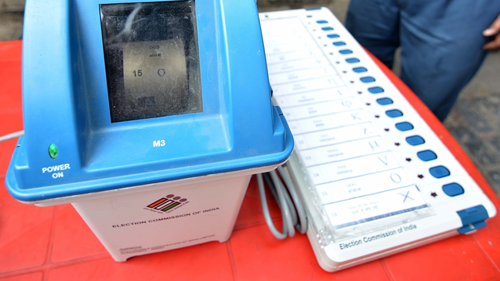The Telangana High Court has put a stay on a government order that would have given 42 percent of seats in local bodies to Backward Classes (BCs). After the court’s decision, the State Election Commission (SEC) announced that the election notice for rural local bodies—covering Zilla Parishad Territorial Constituencies (ZPTCs), Mandal Parishad Territorial Constituencies (MPTCs) and Gram Panchayats—has been put on hold until further notice.
What happened and why it matters
On September 29, the SEC had issued a notice that set up a five‑phase election schedule for October and November. The plan called for:
- ZPTCs and MPTCs to vote on October 23 and 27.
- Gram Panchayats to vote on October 31, November 4 and 8.
More than 1.67 million voters in Telangana were supposed to participate.
The court stay came after the Telangana High Court granted a two‑day hearing on petitions that challenged the 42‑percent BC reservation. Chief Justice Aparesh Kumar Singh and Justice G.M. Mohiuddin ordered an interim pause, requiring both the state government and the SEC to file detailed affidavits in four weeks. Petitioners were given two weeks to respond. The hearing was then adjourned for six weeks.
Effect on the election process
State Election Commissioner Rani Kumudini said the notification for all rural local body elections will now be “kept in abeyance” until the court releases a further order. This means no nominations can be accepted, and the election timeline is suspended.
Previously, the Telangana government had issued a government order on September 26 reserving 42 percent of seats and positions in local bodies for Backward Classes. The move followed the passage of the Telangana Municipalities (Third Amendment) Bill, 2025, and the Telangana Panchayat Raj (Third Amendment) Bill, 2025, which lifted the 50‑percent cap on reservation for all categories. However, the bills had not yet received the Governor’s and President’s approvals at the time the order was issued.
Why the debate is intense
The dispute centers on the balance between social justice and the administrative rules that govern local government representation. Backward Classes are a protected group in India, and expanding their reservation is seen by many as a step toward greater inclusion. Critics raise concerns about potential over‑representation and the impact on local governance.
The SEC had requested a 45‑day extension to complete the election process, but the High Court’s directive, issued before the October timeline, halted progress until the court reviews the case and decides the next steps.
What is next
Voters and local leaders will have to wait for the court’s final ruling on the reservation issue before elections can resume. Full details—what dates will be set and whether the 42‑percent reservation will stand—will be announced once the court delivers its decision. In the meantime, the SEC remains on standby, holding off any new nominations or polling activity until the legal questions are resolved.
This pause underscores the complex interplay between judicial review and electoral administration in Telangana, a state that continues to grapple with how best to give Backward Classes a fair voice in local government while maintaining orderly democratic processes.
Source: ianslive
Stay informed on all the latest news, real-time breaking news updates, and follow all the important headlines in world News on Latest NewsX. Follow us on social media Facebook, Twitter(X), Gettr and subscribe our Youtube Channel.



